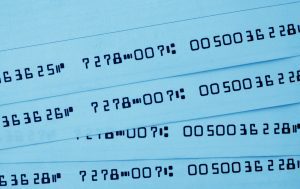INTRODUCTION
In this post, we will outline steps that might help you experience a stress-free Single Audit. Even if you did not pass the $750,000 expenditure threshold for all of your federal grants last year, you might pass it this year. And you never know… funding agencies may also perform an audit over activity funded with their grants. For those reasons, it’s a good idea to be prepared anytime for a Single Audit. You can find the audit requirements explained here.
Your systems will be tighter, your chances of complying greater, your recordkeeping cleaner, and your staff better prepared for new laws and new people coming into your agency either from growth or turnover.
Set Up Your Documentation
Preparation for the Single Audit should be easy if grant documentation has been kept up-to-date throughout the year. A great place to start is this easy-to-read GFOA Grants Administration “Best Practices” article. Even so, here are a few tips we have found helpful after many audits for our clients.
Step One: Check—Is the Grant Federal?
Start with tracking all of your federally sourced programs or activities. You can find this in the award information by looking for something that’s called an Assistance Listing Number (ALN), previously a Catalog of Federal Domestic Assistance (CFDA) number. This number is critical to ensure your project or program is federally sourced. That’s going to be what drives the determination over which programs are tested for the auditor.
Step Two: Grant Organization and Compliance
Collect and maintain information for the auditor.
- Keep all grant award information easily accessible, including the agreement and the notice of award.
- Record any transactions related to the grant within a specific General Ledger account, or when appropriate, a separate fund.
- Make sure to keep track of which accounts you’re using so supporting documentation like invoices and approved contracts are correctly matched to the grant money awarded.
- Keep all that information together in paper form in one file folder or a virtual folder.
- Establish policies and procedures to ensure you are in compliance with grant requirements. See GFOA best practices for Internal Control for Grants here.
- Following the grant’s requirements to the letter, and utilization of the Office of Management and Budget’s (OMB) Compliance Supplement found here will ensure you are within compliance for the Single Audit.
- Prepare a Schedule of Expenditures of Federal Awards (SEFA) utilizing all federally funded grant expenditures. A preliminary SEFA can be prepared near fiscal yearend with expenditures to date, and an estimated final grant expenditures not yet recorded that impact that fiscal year. See GFOA best practices for SEFA Preparation.
The GFOA recommends implementing procedures to ensure an accurate and complete SEFA. Therefore, to pass the Single Audit successfully, you must ensure that the SEFA is done correctly, usually through having good systems and a good training program so your people know how to use the recommended methods.
Step Three: Exactly what does your auditor want?
The audit will go extra smoothly with a detailed and complete SEFA because it contains financial statement numbers, and other grant information not generally found in your general ledger, all relevant to the Single Audit.
The GFOA mentions additional data points such as the federal agency assistance listings numbers, program names, pass-through entities, and subrecipient information as part of what an auditor would want to see during test work and is required to be included in the financial statement presentation of the SEFA. In addition to a completed SEFA, the auditor will generally request:
- Established policies and procedures that impact grant management, including procurement policy within Uniform Guidance requirements.
- Grant award information, notifications and agreements.
- General ledger detail for all activity specific to each grant, that reconciles to the amounts reported on the SEFA, including amounts passed-through to subrecipients.
- Access to supporting documentation of each transaction recorded in the general ledger, including expenditure accrual activity.
- Reconciliation of expenditures reported on the SEFA to related grant revenue, including receivable accrual activity.
Searching for Grant Dollars
Searching for grant money and then applying for it takes a lot of time. When you finally land a grant—especially if it’s one you’ve never had before—you may find yourself trying to figure out exactly what it is! Where precisely can the money be spent? What are the restrictions? Sometimes the grant agreements are hundreds of pages long! You can check out the assistance listings to learn more about your grant and find others you hadn’t known about. It’s worth the research time.
Even so, checking the fine print of your grants assures that your spending matches the grant’s objective. And grants can change year-to-year. Auditors will look at new grants or changes in your agency’s grant-supported activities.
They would also want to double-check your policies. Have your policies been reviewed to incorporate the Uniform Guidance requirements? Double-check that they have been updated in recent years against the Uniform Guidance.
Single Audits, Turnover, and Training
It is essential to have sound grant-related procedures so that when there’s turnover, you don’t lose a step. Review your systems throughout the year, so you’re not slammed a week before the Single Audit.
Here’s an example of a rough Single Audit that didn’t end well. A new person who took over for a vacated position had no clue what they were supposed to do and had no knowledge of the particular grant. They didn’t know what they needed to be tracking and they missed the reimbursement requirement and reporting obligations. In short, they didn’t know what they didn’t know, resulting in noncompliance with grant requirements. When turnover is high, management is often too busy to train new people, so the wheels fall off the wagon.
Best practice: Write or acquire a grant process administration manual. Sometimes excellent grant funds go unused because no one knows how to find them. Or when they do, they mismanage the funds because they don’t have the proper systems in place. Put “grant process administration accounting best practices” in your browser to find dozens of methods—from very simple to very complicated—to help organize your agency’s grants tailored to your entity and your people, whether they’re brand new or just need tighter controls.
What’s the consequence of a failed Single Audit?
When noncompliance occurs during administration of a grant, or is identified during a single audit, grant funding is in jeopardy. Grant funding may need to be repaid if unallowable costs occur, funding can be delayed or eliminated in its entirety. Loss of grant funding can lead to the agency no longer providing services covered by the grant funds. Grants often serve to cover gaps between tax revenues and the costs of services, so the loss of funding could be detrimental to the agency.
CONCLUSION
The Single Audit protects us. It is a rigorous, organization-wide examination of an entity that disburses $750,000 or more of federal assistance received for its operations. The Single Audit is designed to provide assurance to the United States Federal government that states, cities, counties, universities, non-profits, etc., properly use its grant money.
When your CPA tells you to be ready for your Single Audit, you want to be prepared. It’s easier if you have your documentation in place all year, follow the steps above, and make sure you and your staff have read or have tried to understand all that recipients are required to do—especially because the grant money allows for so many great programs and services, and you are a citizen of the best country on the earth.
If you’re new to grants, you can easily feel overwhelmed by looking at the avalanche of grant-related websites! Even if you’re an old hand, you see updated data almost every year. It’s all the more important that you help your staff understand the importance of good controls to maintain a steady flow of grant money.
Single Audits are a healthy step to making sure you receive the funds integral to your work, your mission, and vision in your community. Confused? LSL CPAs can help. Contact your LSL auditor!




